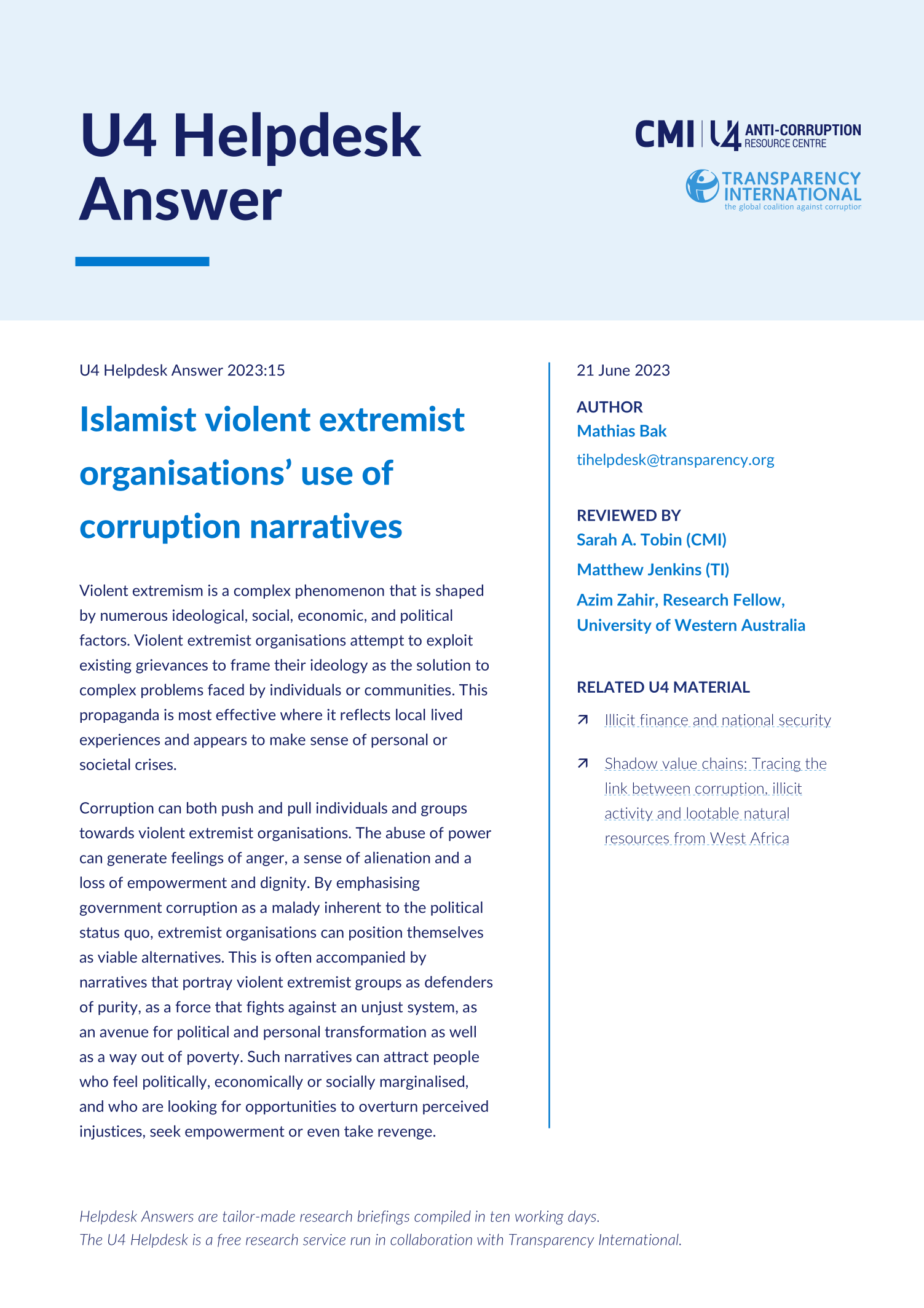Main points
- Recruitment by Islamist violent extremist organisations can draw on ideological factors (such as the notion that Islam is a complete and pure political, social and economic system) as well as concrete social, political and/or economic issues.
- Islamist violent extremism offers a radically different vision of society, which can be attractive to some people who desire a recasting of the socio-political order.
- Perceived corruption – often understood more broadly as injustice or ungodliness by the populace – can play a significant role in increasing dissatisfaction with existing governance structures.
- In practice, corruption – in the sense of the abuse of entrusted power for private gain – also fuels many of the forms of misrule and maladministration that leave groups and individuals more susceptible to the revolutionary messages of violent extremist organisations.
- Violent extremists often tailor their messages to local conditions and individual predicaments to exploit people’s underlying grievances. These material grievances tend to be at least as important as ideological factors.


